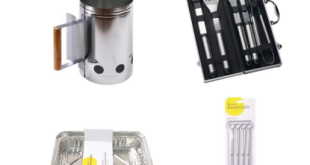 Sainsbury’s has announced an ambitious commitment to reduce plastic packaging by 50% by 2025.
Sainsbury’s has announced an ambitious commitment to reduce plastic packaging by 50% by 2025.
This target includes all branded food packaging, Sainsbury’s brand food packaging and packaging across all of Sainsbury’s operations. Sainsbury’s currently uses almost 120,000 tonnes of plastic packaging per year and believes a ‘transformational leap in thinking is required to move the industry beyond existing efforts at reducing packaging’. Sainsbury’s reduced plastic packaging by 1% in 2018.
To meet this new goal, the supermarket chain will launch a programme that includes switching to alternative materials, using lighter-weight plastics and introducing refillable packaging. Key areas of focus are plastic milk bottles, packaging for fruit and vegetables, fizzy drinks, water and fruit juices.
Some alternatives will require customers to change their behaviour. For example, plastic milk bottles are currently one of largest sources of plastic packaging. Sainsbury’s is reviewing alternative options including the introduction of refillable bottles, introducing returnable milk bottles or offering a reusable jug with milk in a lightweight plastic pouch.
To achieve its ambition, Sainsbury’s will collaborate with food manufacturers, packaging suppliers, raw material scientists and other retailers, alongside the waste and recycling industry. It is also looking for ideas, with an area on its website for customers, manufacturers, entrepreneurs and other interested parties to submit suggestions to help reduce plastic packaging at www.about.sainsburys.co.uk/helpreduceplastic.
Sainsbury’s will work with Greenpeace on this commitment and will report publicly on progress every six months.
Mike Coupe, chief executive of Sainsbury’s, said: “We have set ourselves a bold ambition because we understand that we urgently need to reduce our impact on the planet and to help drive change across our industry.
“Reducing plastic and packaging is not easy. Packaging plays a vital role in keeping our food safe and fresh and minimising food waste. We must therefore find alternatives to plastic that protect the quality of our food while minimising our impact on the environment. We can’t do this on our own and we will be asking our suppliers and customers to work with us to help us make this important change.”
 Housewares Business-to-business magazine for housewares retailers and their suppliers
Housewares Business-to-business magazine for housewares retailers and their suppliers



